SCORM
Shareable Content Object Reference Model (SCORM) is a collection of standards and specifications for web-based e-learning. It defines communications between client side content and a host system (called "the run-time environment"), which is commonly supported by a learning management system. SCORM also defines how content may be packaged into a transferable ZIP file called "Package Interchange Format." SCORM is a specification of the Advanced Distributed Learning (ADL) Initiative from the Office of the United States Secretary of Defense.
Claroline
Claroline is a collaborative learning management system released under the GPL open-source license. It allows hundreds of organizations worldwide ranging from universities to schools and from companies to associations to create and administer courses and collaboration spaces over the web. The platform is used in more than 100 countries and is available in 35 languages. The Claroline project was initiated by the University of Louvain in Louvain-la-Neuve, Belgium.
MIT OpenCourseWare
MIT OpenCourseWare (MIT OCW) is an initiative of the Massachusetts Institute of Technology (MIT) to publish all of the educational materials from its undergraduate - and graduate-level courses online, freely and openly available to anyone, anywhere. The project was announced on April 4, 2001, and uses Creative Commons Attribution-NonCommercial-ShareAlike license. In September 2002, the MIT OpenCourseWare proof-of-concept pilot site opened to the public, offering 32 courses. The program was originally funded by the William and Flora Hewlett Foundation, the Andrew W. Mellon Foundation, and MIT.
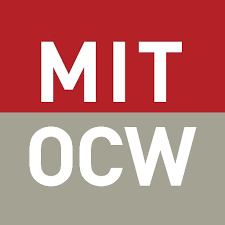
GeoGebra
GeoGebra is an interactive geometry, algebra, statistics and calculus application, intended for learning and teaching mathematics and science from primary school to university level. Markus Hohenwarter started the project in 2001 as part of his master's thesis at the University of Salzburg. GeoGebra's source code is licensed under the GNU General Public License (GPL) and all other non-software components are under Creative Commons BY-NC-SA.
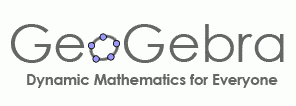
Open Educational Resources
Open Educational Resources (OER) was first coined in July 2002 at UNESCO's Forum on Open Courseware. OER are teaching, learning and research materials in any medium – digital or otherwise – that reside in the public domain or have been released under an open license that permits no-cost access, use, adaptation and redistribution by others with no or limited restrictions.
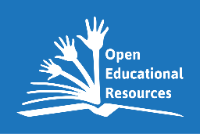
Moodle
Moodle is a free and open-source learning management system (LMS). Developed on pedagogical principles, Moodle is used for blended learning, distance education, flipped classroom and other e-learning projects in schools, universities, workplaces and other sectors. Martin Dougiamas wrote the first version of Moodle.

Sakai
Sakai is an learning management system designed to support teaching, research and collaboration. Sakai is developed by a community of academic institutions, commercial organizations and individuals. Sakai is developed as open source software as a community effort, stewarded by the Apereo Foundation, a member-based, non-profit corporation. The development of Sakai was originally funded by a grant from the Mellon Foundation in 2004.

One Laptop per Child
One Laptop per Child (OLPC) was a non-profit initiative established with the goal of transforming education for children around the world; this goal was to be achieved by creating and distributing educational devices for the developing world, and by creating software and content for those devices. The OLPC was by Nicholas Negroponte and Seymour Papert while at the MIT Media Lab.
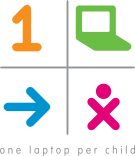
Khan Academy
Khan Academy is a non-profit educational organization created in 2006 by Sal Khan, with the goal of creating a set of online tools that help educate students. The organization produces short lessons in the form of videos. Its website also includes supplementary practice exercises and materials for educators. All resources are available for free to users of the website and application.

Cape Town Open Education Declaration
The Cape Town Open Education Declaration is a major international statement on open access, open education and open educational resources. It emerged from a conference on open education hosted in Cape Town on 14 and 15 September 2007 by the Shuttleworth Foundation and the Open Society Institute.
Canvas
Canvas is a learning management system, whose core is freely available under an AGPL license, with many additional proprietary add-ons. It was originally named Instructure and was founded in 2008 by two Brigham Young University graduate students, Brian Whitmer and Devlin Daley.

Chamilo
Chamilo is a free software e-learning and content management system, aimed at improving access to education and knowledge globally. It is backed up by the Chamilo Association, which has goals including the promotion of the software, the maintenance of a clear communication channel and the building of a network of services providers and software contributors. The Chamilo project was officially launched on 18 January 2010 by a considerable part of the contributing community Dokeos software, after growing discontent on the communication policy inside the Dokeos community.
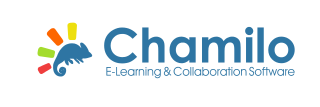
Udemy
Udemy is an American massive open online course (MOOC) provider aimed at professional adults and students. It was founded in May 2010 by Eren Bali, Gagan Biyani, and Oktay Caglar. The platform has more than 40 million students, 155,000 courses and 70,000 instructors teaching courses in over 65 languages. There have been over 480 million course enrollments. Students and instructors come from 180+ countries and 2/3 of the students are located outside of the U.S.

Coursera
Coursera is an American massive open online course provider founded in 2012 by Stanford University computer science professors Andrew Ng and Daphne Koller. Coursera works with universities and other organizations to offer online courses, certifications, and degrees in a variety of subjects.

edX
edX was founded in May 2012 by scientists from MIT and Harvard. edX is an American massive open online course (MOOC) provider created by Harvard and MIT. It hosts online university-level courses in a wide range of disciplines to a worldwide student body, including some courses at no charge. It also conducts research into learning based on how people use its platform. edX is a nonprofit organization and runs on the free Open edX open-source software platform.

UNESCO 2012 Paris OER Declaration
The UNESCO 2012 Paris OER Declaration, otherwise known as the Paris declaration on Open Educational Resources, is a declaration urging governments to promote the use of open educational resources (OERs) and calling for publicly funded educational materials to be released in a freely reusable form.
In June 2012, the United Nations Educational, Scientific and Cultural Organisation (UNESCO) and the Commonwealth of Learning (COL) held a World OER Congress. This took place at the UNESCO headquarters in Paris with financial support from the William and Flora Hewlett Foundation. At this point, the Open Educational Resources (OER) movement was a decade old, the term having been coined in another meeting at UNESCO in 2002.